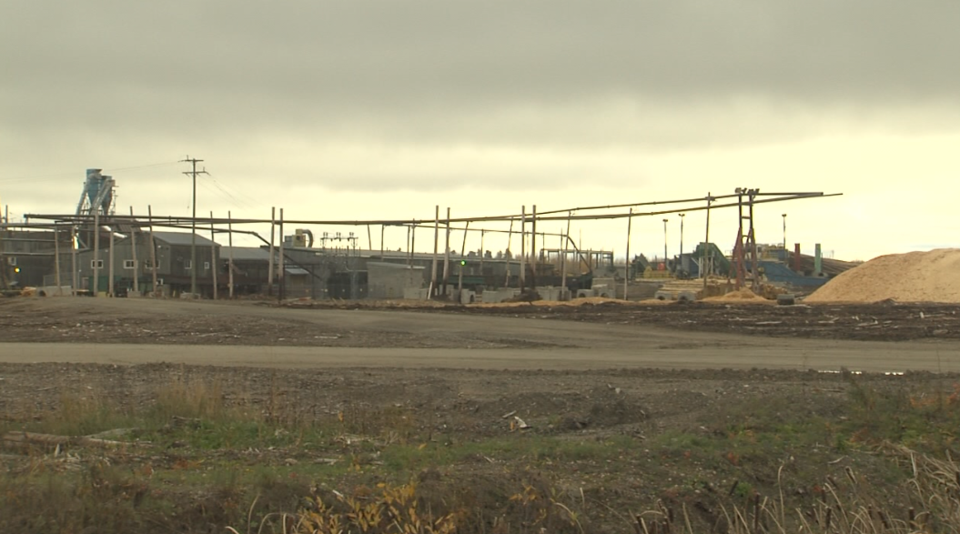GREENSTONE – This isn’t the first time the pulp mill in Terrace Bay shut its doors indefinitely.
In the early 2000s, the mill was previously owned by Thunder Bay-based Buchanan Group and was shut down when it went into receivership.
The effect of the shutdown impacted the surrounding communities in many different ways.
For the Municipality of Greenstone, in particular, the sawmills in Nakina and Longlac will need to look further than Terrace Bay to ensure their products get out to market.
“It impacts everybody - the local businesses, it impacts the trucking companies, it impacts the fuel suppliers, it impacts all the people who drive the equipment in the bush from hauling to harvesting to laying out the blocks to road building,” said Greenstone Mayor Jamie McPherson.
In 2012, the mill was acquired by Aditya Birla Group, becoming a saving grace for the region. However, after citing an economic downturn in the forestry sector earlier this month, AV Terrace Bay Pulp Mill announced they will be shutting down production indefinitely, affecting approximately 400 employees.
Moreover, the mill often supplied 320,000 metric tons of northern bleached softwood kraft pulp annually.
"You've got the chip trucks coming in from the sawmills," McPherson said. "The hog fuel coming in those drivers, hopefully the sawmills in Longlac and Nakina can keep going because it's able to get the wood from the north. It will need to find a market for its chips. Hopefully, that can go to Thunder Bay.
“It's the impact to the families and the workers who then don't have work. So certainly, we have to find ways to reach out and provide whatever programs the federal-provincial government has that can assist people,” he added.
Mayor of Terrace Bay Paul Malashewski explained that he will be in talks with MP Patty Hajdu later this week, but he commended the commitment made by Thunder Bay-Superior North MPP Lise Vaugeois advocating on the region's behalf.
“She's doing a lot of work behind the scenes. Working the phones there with the government down in Toronto to try to get things going,” Malashewski said.
Vaugeois cites her concern for her constituents by referring to the Terrace Bay Mill as a “primary economic engine and an anchor for the community and for many communities along the northshore.”
“It also affects people on Highway 11 who would be doing cutting, chipping, delivering and so on. It has a large impact right now. We are working together with the mayors of Terrace Bay and Schreiber in particular and with the unions to make sure that there's a support system in place for workers as soon as possible,” Vaugeois said.
With the impact affecting many individuals suddenly out of work, Vaugeois emphasize assistance programs are available to ensure that people have an income while looking for work elsewhere.
“There’s an agency where workers can go and get their EI quickly. They can seek out job training and find an appropriate job board. All of those things are in process right now. We're working together with Gary Christian from the North of Superior Workplace Planning Board and trying to get this put together as quickly as possible. In the meantime, we know that at the Rural Ontario Municipal Association, there will be meetings there in about three weeks,” explained Vaugeois.
McPherson stresses federal programs are available and the municipality will aid those affected by the Terrace Bay Mill closure in obtaining the resources to connect them with social assistance.
“There are so many singular individual contractors that we have to reach out as much as we can across the different media to let them know, 'Hey, there are options.' Hopefully, those who wish assistance are available to get that assistance,” McPherson said.
Outside of emphasizing government social assistance as a temporary supplement to lost income, Malashewski plans on connecting with Natural Resource and Forestry Minister Grayson Smith at the upcoming Rural Ontario Municipal Association Conferences in a couple of weeks to talk about getting the mill running.
This is a sentiment that Vaugeois supports.
“What we do know is that the product is viable. It's needed. It's craft paper. It's a cardboard. So, we need to be looking at what are the options,” questioned Vaugeois.
“What we want workers to know and the people in those communities to know is that we are on top of this. We are doing everything in our power to make sure that the support is there. That the conversations take place and that everybody's at the table so that everyone's got all the information. Then we can see how to come up with a long-term solution,” Vaugeois added.
